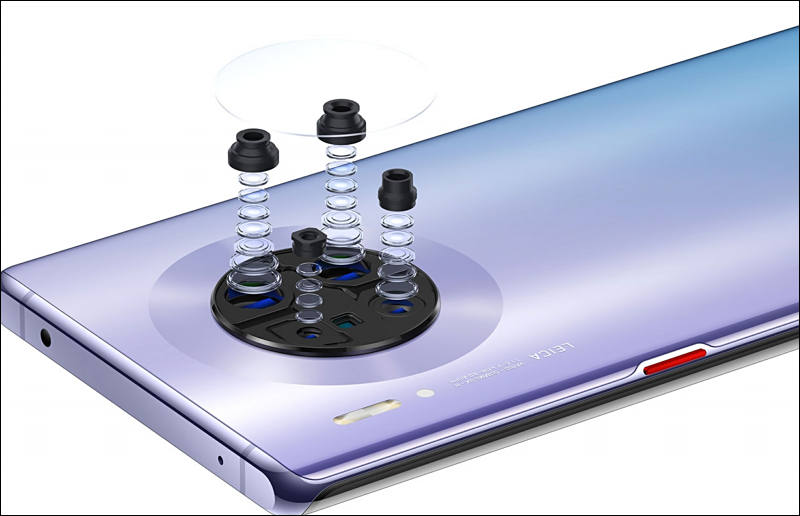
It allows to keep PV going, with more focus towards AI, but keeping be one of the few truly independent places.
-
Back sensors and cameras
- Supersensing camera array
- Ultra wide 16mp lens
- Supersensing wide 40 mp camera
- 8-megapixel telephoto lens
- Laser focus
- ISO 204800
- 3x optical and 30x digital zoom. Total 45x zoom range
- 2.5cm macro shot distance offering more details in macro shots
- OIS and AIS image stabilisation
- Pro bokeh effects to rival DSLRs
Front sensors and cameras
- Gesture sensor
- 3d depth camera
- Ambient light and proximity sensor
- Selfie camera
EU prices
- Huawei Mate 30 - 799 Euros
- Huawei Mate 30 Pro - 1099 Euros
- Huawei Mate 30 Pro 5G version - 1199 Euros
-

 sa10154.jpg800 x 596 - 127K
sa10154.jpg800 x 596 - 127K -
High speed modes
One of the headline features of the Mate 30 Pro is its super slow motion capabilities. Most smartphones available on the market today, if they offer slow motion, do it at either 120 fps, 240 fps, or up to 960 fps. This typically comes in the form of a sensor and system that can take 120 frames per second video and do clever interpolation to appear as if it is a higher frame rate. We’ve seen some good and bad solutions here.
The way that traditional slow motion cameras work is on a sliding scale – the trade-off between frame rate is resolution. If you reduce the area of the sensor that needs to take the image by one quarter, then technically the fast memory storing the video data can store 4x as much – as long as you can poll data from the sensor at 4x the speed, it should be good to go.
It seems that Huawei is doing a mix of things here to get 7680 fps. The camera offers several settings, which comes with a slider from 2x to 256x. Any setting 32x or lower gives a 1080p video, while 64x and higher gives a 720p video:
- 1080p at 120 fps = 4x speedup
- 1080p at 240 fps = 8x speedup
- 1080p at 960 fps = 32x speedup
- 720p at 1920 fps = 64x speedup
- 720p at 7680 fps = 256x speedup
Howdy, Stranger!
It looks like you're new here. If you want to get involved, click one of these buttons!
Categories
- Topics List23,990
- Blog5,725
- General and News1,353
- Hacks and Patches1,153
- ↳ Top Settings33
- ↳ Beginners256
- ↳ Archives402
- ↳ Hacks News and Development56
- Cameras2,366
- ↳ Panasonic995
- ↳ Canon118
- ↳ Sony156
- ↳ Nikon96
- ↳ Pentax and Samsung70
- ↳ Olympus and Fujifilm100
- ↳ Compacts and Camcorders300
- ↳ Smartphones for video97
- ↳ Pro Video Cameras191
- ↳ BlackMagic and other raw cameras116
- Skill1,960
- ↳ Business and distribution66
- ↳ Preparation, scripts and legal38
- ↳ Art149
- ↳ Import, Convert, Exporting291
- ↳ Editors191
- ↳ Effects and stunts115
- ↳ Color grading197
- ↳ Sound and Music280
- ↳ Lighting96
- ↳ Software and storage tips266
- Gear5,420
- ↳ Filters, Adapters, Matte boxes344
- ↳ Lenses1,582
- ↳ Follow focus and gears93
- ↳ Sound499
- ↳ Lighting gear314
- ↳ Camera movement230
- ↳ Gimbals and copters302
- ↳ Rigs and related stuff273
- ↳ Power solutions83
- ↳ Monitors and viewfinders340
- ↳ Tripods and fluid heads139
- ↳ Storage286
- ↳ Computers and studio gear560
- ↳ VR and 3D248
- Showcase1,859
- Marketplace2,834
- Offtopic1,320








